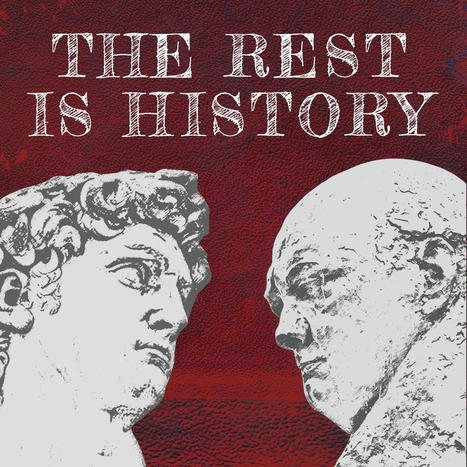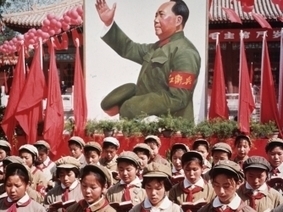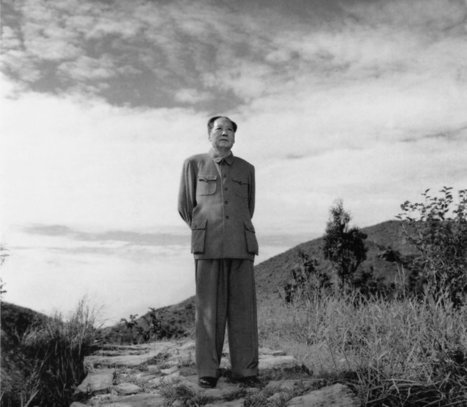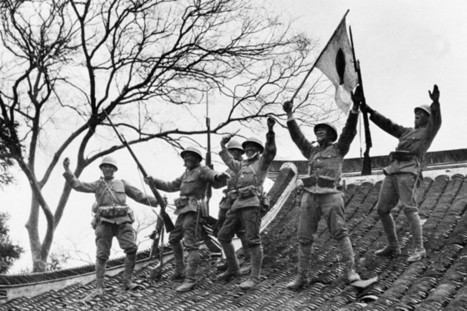Research and publish the best content.
Get Started for FREE
Sign up with Facebook Sign up with X
I don't have a Facebook or a X account
Already have an account: Login
 Your new post is loading... Your new post is loading...
 Your new post is loading... Your new post is loading...

Kent College History's curator insight,
August 5, 2017 5:11 AM
'Mao Zedong made great political capital out of the Red Army’s epic trek to escape the clutches of their enemies in China 80 years ago. But, as Edward Stourton explains, the communist leader’s version of the march did not always reflect reality.'

Kent College History's curator insight,
December 26, 2016 3:11 PM
Frank Dikotter interviewed about the Cultural Revolution.

Kent College History's curator insight,
November 2, 2016 4:42 PM
'Saul Yeung was a member of the Red Guards. He spoke to Witness about his memories of that time and the guilt he still carries.'

Kent College History's curator insight,
July 17, 2016 3:01 AM
'Believing that current Communist leaders were taking the party, and China itself, in the wrong direction, Mao called on the nation’s youth to purge the “impure” elements of Chinese society and revive the revolutionary spirit that had led to victory in the civil war 20 decades earlier and the formation of the People’s Republic of China.'

Kent College History's curator insight,
May 10, 2016 2:59 AM
'Frank Dikotter’s gripping, horrific and at times sensationalistic The Cultural Revolution: A People’s History, 1962-1976 ... challenges the Chinese people to address those missing years. Drawn from hundreds of English-language and Chinese eyewitness accounts, newly available archival records, online Cultural Revolution documentary projects and foreign and Chinese scholarship, the book paints such a damning portrait of Mao and Communist Party governance that if it were widely circulated in China, it could undermine the legitimacy of the current regime.'
|

Kent College History's curator insight,
October 23, 2017 3:26 PM
'Toward the end of his life, dying of Lou Gehrig’s disease, Mao Zedong claimed two achievements: leading the Communist revolution to victory and starting the Cultural Revolution. By pinpointing these episodes, he had underlined the lifelong contradiction in his attitudes toward revolution and state power. Mao molded Communism to fit his two personas. To use Chinese parlance, he was both a tiger and a monkey king.'

Kent College History's curator insight,
March 2, 2017 4:56 AM
'Third-Front" (san xian) construction was a strategic policy in the modern history of China. In the early 1960s, in the face of a complicated international situation, to preserve the nation’s strength Chairman Mao Zedong decided to relocate many heavy industries and military factories to the southwestern and northwestern hinterland areas. This extensive industrial move was historically known as the “Third-Front Construction".'

Kent College History's curator insight,
January 12, 2017 2:53 AM
'More than 70 years after its conclusion, China's bitter and lengthy "War Against Japanese Aggression" just got six years longer. At the beginning of the upcoming Spring semester, the "Eight-year Chinese People's War of Resistance Against Japanese Aggression" will become the "14-year Chinese People's War of Resistance Against Japanese Aggression" in textbooks across the country, according to the Ministry of Education.'

Kent College History's curator insight,
September 13, 2016 2:55 AM
A short piece from the Economist on Mao's legacy. 'A mere 18 years after the death of Mao Zedong, it was possible for a notable Sinologist to give his book on Chinese reforms the title of “Burying Mao”. And who was to quibble?'

Kent College History's curator insight,
July 16, 2016 11:03 AM
'In this insight, Rana Mitter attempts to re-examine as many aspects as possible of China’s experience of the highly destructive, eight-year war with Japan. Mitter discusses the major leaders (Chiang Kaishek, Mao Zedong and Wang Jingwei) and about the ordinary people who became caught up in terrible times.' |



















'China's Cultural Revolution under Chairman Mao was one of the most staggeringly brutal events in recent human history. Tom and Dominic are joined by historian Rana Mitter, who specialises in the history of Republican China.'